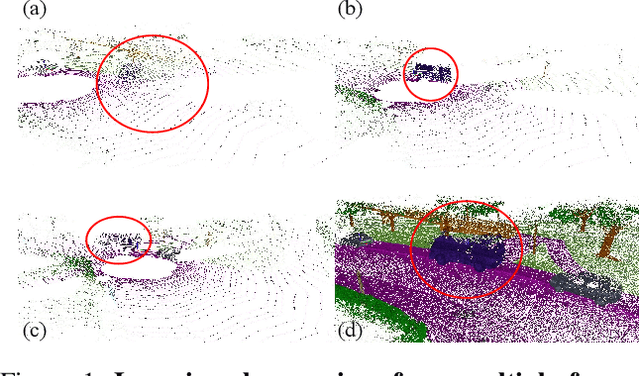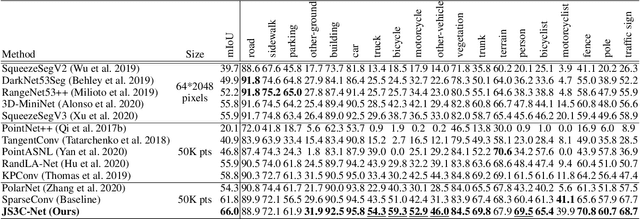Sparse Single Sweep LiDAR Point Cloud Segmentation via Learning Contextual Shape Priors from Scene Completion
Paper and Code
Dec 07, 2020



LiDAR point cloud analysis is a core task for 3D computer vision, especially for autonomous driving. However, due to the severe sparsity and noise interference in the single sweep LiDAR point cloud, the accurate semantic segmentation is non-trivial to achieve. In this paper, we propose a novel sparse LiDAR point cloud semantic segmentation framework assisted by learned contextual shape priors. In practice, an initial semantic segmentation (SS) of a single sweep point cloud can be achieved by any appealing network and then flows into the semantic scene completion (SSC) module as the input. By merging multiple frames in the LiDAR sequence as supervision, the optimized SSC module has learned the contextual shape priors from sequential LiDAR data, completing the sparse single sweep point cloud to the dense one. Thus, it inherently improves SS optimization through fully end-to-end training. Besides, a Point-Voxel Interaction (PVI) module is proposed to further enhance the knowledge fusion between SS and SSC tasks, i.e., promoting the interaction of incomplete local geometry of point cloud and complete voxel-wise global structure. Furthermore, the auxiliary SSC and PVI modules can be discarded during inference without extra burden for SS. Extensive experiments confirm that our JS3C-Net achieves superior performance on both SemanticKITTI and SemanticPOSS benchmarks, i.e., 4% and 3% improvement correspondingly.
 Add to Chrome
Add to Chrome Add to Firefox
Add to Firefox Add to Edge
Add to Edge